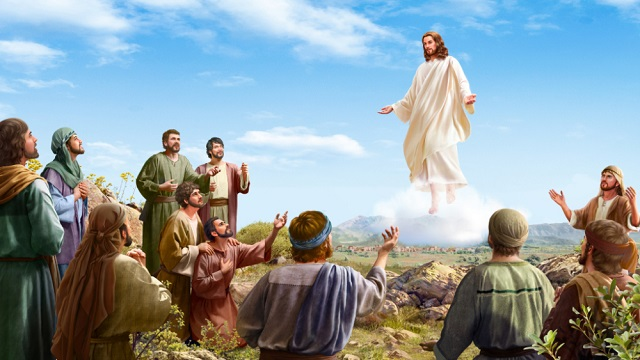Stay Prepared and Ready

This week’s lesson gives you a better understanding about the effect of the arrangement of the verses and punctuation and chapter divisions in scripture. Original manuscripts of scripture were not divided into chapters and verses. The messages were given by the Holy Spirit to the inspired writers. These scrolls were hand written and then copied over and again by hand and distributed or delivered to intended audiences. The printing press of the 1500’s gave us the opportunity to make these chapter and verse divisions so that public reading and private study would be a simpler process for readers and teachers and printing press type setters.
Matthew 25 begins with the RED word “then,” continuing the same instructional conversation of Jesus on the Mount of Olives that began in Matthew 24. Here, Jesus is continuing to use parables of truth to illustrate the importance of how we should be prepared and ready at all times for His return. The Olivet Discourse covers two chapters in Matthew, all in one setting on the Mount.
In Matthew 25, Jesus relates three stories, all of which illustrate the importance of preparedness. The first story is about the arrival of the bridegroom at his wedding. The second story is about the master and lord of slaves taking a journey and leaving his workers in charge in his absence. The third story is about the return of the Son of Man (Jesus) Who will reign as The King on the throne of judgement.
In all three stories, Jesus is the main character. He is the Bridegroom that arrives for the wedding and marriage supper. He is the Master and Lord of servants who goes “away” for a time and then returns. He is the King Who will keep records of the people in his kingdom and pass perfect judgement upon their accomplishments (or the lack thereof).
In all three stories, there are “attendants” who have expectations and who either succeed or fail because of their own choices and actions. There is an absence “time away” factor in all three stories. There will be an account given by those who are to remain and carry on the work. There is a Lord. There are people who are responsible to report for duty to the Lord. There is a time away while the workers perform their duties. There is an unknown length of time for the master to be away, coupled with an expectation of meaningful work to be done while he is gone. There is a return. There is an accounting to be made with the master being in charge of judging the results.
In each of the stories, there is ONE master but there are TWO categories of servants. To the foolish servants, the wicked steward and the goats, the master declares: I do not know you. You are cast into darkness. Depart from Me. To the wise servants, the faithful steward and the sheep, the master declares: Enter in with the bridegroom. Well done good and faithful servant. Inherit the kingdom.
It would be very difficult for any reader to miss the overall point of these stories in Matthew 25. The Master makes it plain that while He is away, they are to be prepared, they are to utilize their gifts to complete their assignments and they are to minister to the needs around them.
We are either prepared or unprepared. We are either wise or foolish. We are either willing to minister to the needs around us or we choose to ignore them. Remember that the decisions and judgements of their actions are not up for review or discussion. The declaration of the master is final. Their cases are closed for eternity. His gifting and His love and His assignments for them are plain. Their response to what He has assigned will determine His analysis of their work.
We are currently living in between the ascension of Jesus and the return of Jesus to rapture His church. He could return at any moment. What part of “be prepared” do we not understand? We have kingdom work to do while we wait. Go!





Login To Leave Comment